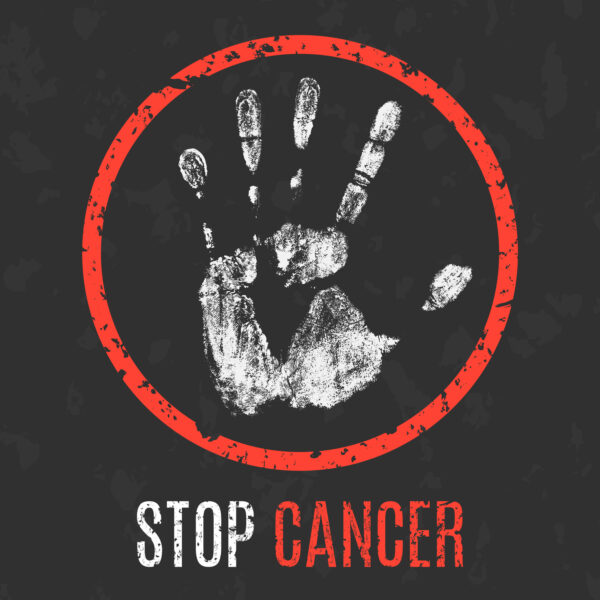
In recent months, scientists and policymakers around the globe have rallied together with one common goal: to eliminate Covid-19. Budgets have been revised to funnel money toward research, competitive barriers between scientists and companies have been lowered, and regulatory processes have been reworked to help safe and effective drugs and vaccines get to patients faster. It’s a time of urgency, of disruptive healthcare changes, and of creative problem-solving.
When Covid-19 is gone, diseases will continue to take their toll on our loved ones. Every year in the U.S., more than 1.8 million people are diagnosed with cancer, and more than 600,000 die of cancer; COVID-19 may drive those numbers even higher. In fact, the National Cancer Institute recently predicted 10,000 additional cancer deaths resulting from delayed screening for breast and colon cancers alone.

With the Rise of AI, What IP Disputes in Healthcare Are Likely to Emerge?
Munck Wilson Mandala Partner Greg Howison shared his perspective on some of the legal ramifications around AI, IP, connected devices and the data they generate, in response to emailed questions.
While cancer doesn’t fundamentally change how most businesses interact with customers, and it won’t shutter our schools, it ravages our world in other ways—people we care about are gone too soon, we are saddled with burdensome medical bills, and hours of work are lost to treatment and recovery. Like Covid-19, cancer knows no geographic or economic boundaries.
However, the global response to the pandemic has brought something hopeful into focus – we’ve learned that, in times of great need, the global scientific community can push the boundaries of science and medicine. Let’s take this momentum and use it to cure cancer once and for all. Our citizens agree that there should be no delay in getting treatments to dying Covid-19 patients. We argue that this should also be true for cancer patients.
Lung-MAP, a first of its kind collaborative cancer clinical trial created by a public-private partnership between Friends of Cancer Research, The National Cancer Institute, National Clinical Trials Network, and The Foundation for the National Institutes of Health, was designed to quickly and efficiently test new treatments for advanced non-small cell lung cancers. Setting up clinical trials with accelerated timelines and flexible treatment options, a process widely achieved in the fight against Covid-19, has enabled us to improve outcomes in cancer patients, as well.
Stand Up To Cancer is also working with Friends of Cancer Research (Friends), to employ new approaches to accelerate clinical trials and enhance patient outcomes. For example, the SU2C Catalyst program operates as an intermediary between the pharmaceutical industry and academic researchers, pairing innovative scientists with promising emerging drugs and therapies.
It goes without saying that we need more efficient ways to study drugs. Encouraging pharmaceutical companies to work together to study combination therapies, having regulatory and funding processes that are nimble enough to pivot mid-trial to follow a new direction, and streamlining hospital and university committee and Institutional Review Board processes, can help get treatments to our patients faster.
To help tackle Covid-19, academic centers and drug developers have been data sharing like never before. One example is the COVID-19 Evidence Accelerator, run by the Reagan-Udall Foundation and Friends of Cancer Research, where leading public health experts rally together to share the latest data and insights. This mindset—competitiveness with a disease instead of each other—could be a boon for cancer research and treatment.
Today, only a small percentage of adult cancer patients in the U.S. participate in clinical trials, and those numbers are even lower among minority populations and underserved communities. More than 80% of cancer patients receive their treatments in community settings. Because many cancer patients reside in rural or underserved urban areas, they don’t have easy access to state-of-the-art facilities running clinical trials. We need to eliminate barriers that make cancer clinical trials inaccessible. And further, we should follow the FDA’s recent guidelines and expand clinical trial eligibility criteria. To truly energize cancer research, we must expand clinical trial participation by focusing on education and community outreach to earn the trust of patients and increasing their willingness to consider experimental treatment options.
Covid-19 stands as a litmus test for pushing the boundaries of standardized research processes. Studies have been expedited, drugs have been made available to patients who might not otherwise participate in trials, and researchers are collaborating with competitors from other labs and companies. Let’s start making this cooperative spirit the rule rather than the exception in science and medicine. Let’s use this shared focus, urgency, and the new partnerships being forged, to invigorate and accelerate cancer research. The long-term collective health of our nation depends on it.
Sung Poblete, PhD, RN is CEO of Stand Up To Cancer(SU2C); Raymond N. DuBois, MD, PhD is dean of the College of Medicine at the Medical University of South Carolina, director of the MUSC Hollings Cancer Center and a vice chair of the SU2C Scientific Advisory Committee; Ellen V. Sigal, PhD is the chairperson and founder of Friends of Cancer Research and a member of the SU2C Scientific Advisory Committee.














